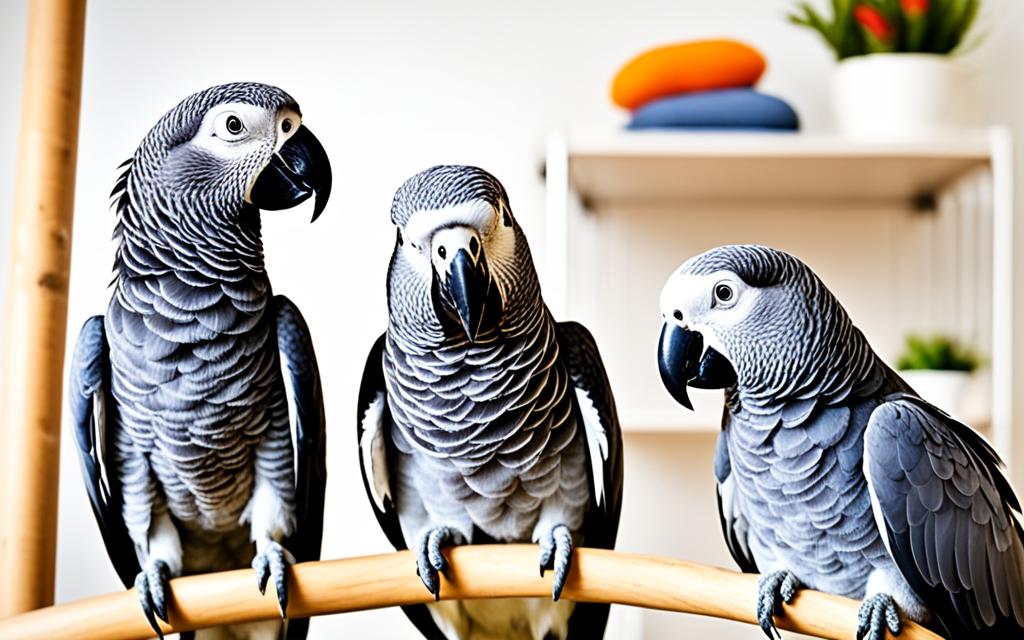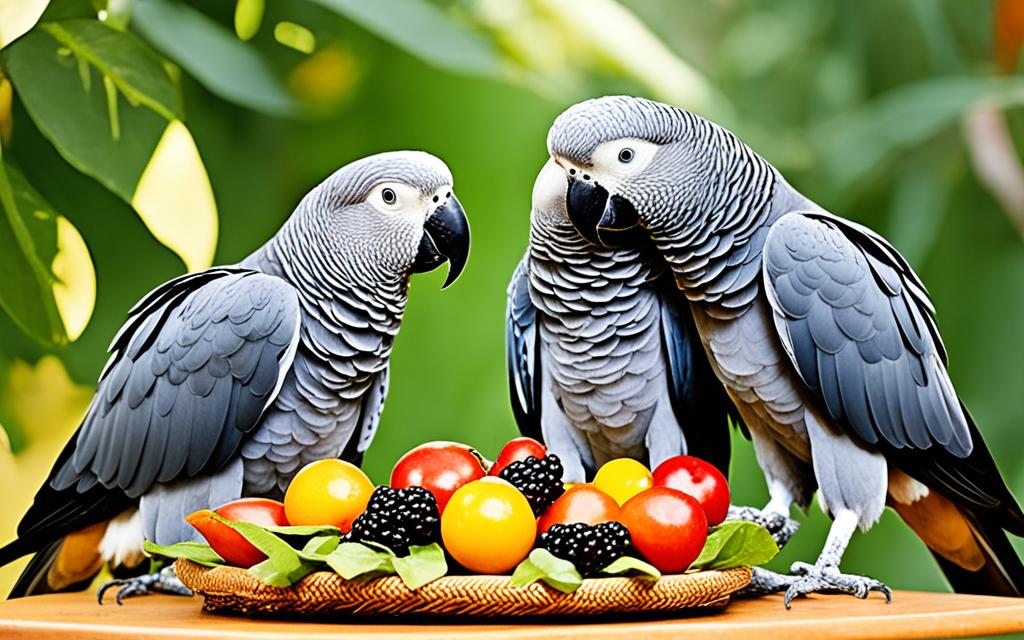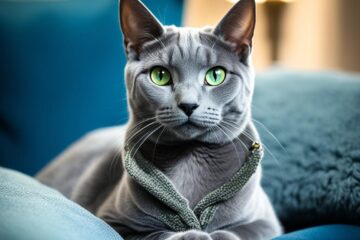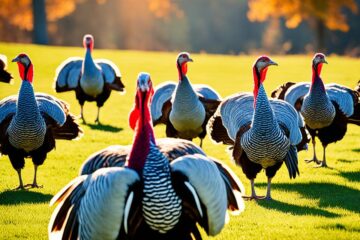As the renowned naturalist Jane Goodall once said, “What you do makes a difference, and you have to decide what kind of difference you want to make.” This sentiment rings true when it comes to caring for our feathered companions, the African Greys and Amazons. These intelligent and captivating parrot species have captured the hearts of many, and as responsible pet owners, we must ensure they receive the best possible care and environment.
This comprehensive guide delves into the intricate details of homemaking, feeding, medicine, hygiene, and overall care for African Greys and Amazons. By gaining a thorough understanding of these remarkable creatures, readers will be empowered to provide their feathered friends with the utmost care and attention they deserve. After all, as the renowned author and animal behaviorist Temple Grandin has said, “The greatest thing about animals is that they don’t lie. They’re very direct. They live in the moment.”
Key Takeaways
- Comprehensive guide on caring for African Greys and Amazons as household pets
- Covers key aspects of parrot ownership, including homemaking, feeding, medicine, hygiene, and overall care
- Empowers readers to provide the best possible environment and care for their feathered companions
- Explores the intelligent and captivating nature of these popular parrot species
- Emphasizes the importance of responsible pet ownership and understanding the specific needs of African Greys and Amazons
Introduction to African Greys and Amazons
The world of pet parrots is vast and diverse, but two species stand out for their exceptional intelligence and popularity among avian enthusiasts: the African Greys and the Amazons. These two parrot species, known for their captivating personalities and remarkable abilities, have captured the hearts of many pet owners seeking intelligent and engaging avian companions.
Intelligent and Curious Parrots
African Greys and Amazons are renowned for their exceptional cognitive abilities, earning them a reputation as some of the most intelligent birds in the world. These parrots display a remarkable capacity for learning, problem-solving, and even mimicry, making them fascinating and rewarding pets for those willing to provide them with the proper care and attention they require.
Popular Pet Parrot Species
The popularity of African Greys and Amazons as household pets has grown steadily over the years, with these species becoming increasingly sought-after among parrot enthusiasts. Their striking appearances, engaging personalities, and ability to form strong bonds with their human companions have contributed to their widespread appeal, making them some of the most popular and beloved pet parrots in the world.
African Greys and Amazons
As two of the most popular and intelligent parrot species, the Congo African Greys and the various Amazona parrot varieties have captivated the hearts of exotic pet enthusiasts worldwide. These talking birds are renowned for their remarkable cognitive abilities, making them cherished companions in many households.
Congo African Greys
The Congo African Grey is a species of parrot that has long been celebrated for its exceptional talking skills and endearing personality. These exotic pets are known for their striking silver-gray plumage, accented by a distinct black beak and bright red tail feathers. With their keen intelligence and ability to mimic a vast range of sounds, Congo African Greys have become one of the most sought-after parrot breeds for those seeking an engaging and interactive avian companion.
Amazona Parrot Varieties
Alongside the iconic Congo African Greys, the Amazona parrot varieties have also gained widespread popularity as exotic pets. This diverse group of parrots, including the Amazon parrot, the Blue-fronted Amazon, and the Yellow-naped Amazon, captivate bird enthusiasts with their vibrant plumage, enchanting vocalizations, and endearing personalities. These talking birds are renowned for their playful nature and their ability to forge strong bonds with their human caregivers.
Talking Abilities and Personalities
Both Congo African Greys and Amazona parrots are renowned for their exceptional talking abilities, which have made them highly desirable exotic pets. These intelligent birds possess the capacity to mimic a wide range of sounds, from simple words and phrases to complex sentences and even melodies. Their impressive vocal talents, combined with their inquisitive and affectionate personalities, make them truly captivating companions for those who are willing to dedicate the time and effort required to provide them with a nurturing and stimulating environment.

Housing and Environmental Needs
Providing the right housing and environment is crucial for the well-being of African Greys and Amazons, two highly intelligent parrot species. These birds require ample space to move, explore, and express their natural behaviors, making the selection of an appropriate cage a top priority for responsible parrot owners.
Cage Requirements
The cage size for African Greys and Amazons should be large enough to accommodate their wingspan and allow for comfortable movement. A minimum recommended cage size is 30 inches wide, 30 inches deep, and 48 inches tall, with bars spaced no more than 1 inch apart. The cage should be equipped with multiple perches of varying sizes and textures, as well as a variety of toys and enrichment items to encourage socialization and prevent boredom.
Importance of Socialization
In addition to providing a suitable housing environment, socialization is crucial for the overall well-being of African Greys and Amazons. These parrots are highly social and intelligent birds that thrive on human interaction and bonding. Regular handling, training, and engaging in interactive activities with their owners are essential to meet their emotional and behavioral needs, fostering a strong and trusting relationship.

Dietary Considerations for Parrots
Maintaining a balanced parrot diet is crucial for the overall health and well-being of African Greys and Amazons. These intelligent birds require a carefully curated blend of high-quality pellets, fresh fruits and vegetables, and supplementary items to ensure they receive all the essential nutrients they need.
Balanced Parrot Diet
The foundation of a healthy parrot diet should be a high-quality, commercially available pellet formulation designed specifically for parrots. These pellets provide a balanced source of protein, carbohydrates, fats, vitamins, and minerals. Experts recommend that pellets make up the majority of the parrot’s daily intake, accounting for approximately 60-70% of their total diet.
In addition to pellets, it is important to incorporate a variety of fresh fruits and vegetables into the parrot’s diet. These nutrient-dense foods not only provide essential vitamins and minerals but also add variety and enrichment to the parrot’s mealtime experience. Some recommended safe foods for parrots include dark leafy greens, carrots, berries, and cooked sweet potatoes.
Safe and Unsafe Foods
While a balanced parrot diet is essential, it is equally important to be aware of unsafe foods that can be harmful to these intelligent birds. Certain human foods, such as avocado, chocolate, onions, and caffeine-containing items, should be strictly avoided as they can be toxic to parrots. It is crucial to research and identify the safe foods that can be safely introduced into a parrot’s diet to ensure their balanced nutrition and overall health.
Health and Hygiene
Maintaining the health and hygiene of African Greys and Amazons is crucial for their well-being and longevity as household pets. These intelligent parrots can be susceptible to various common health issues, such as respiratory infections, feather-plucking, and digestive problems. Proactive preventative care and early detection of any medical concerns are essential for addressing these challenges effectively.
Common Health Issues
Parrot health is a top priority, and it’s important to be aware of the common health issues that can affect African Greys and Amazons. Respiratory infections, caused by factors like poor air quality or bacterial/viral agents, can be a significant concern. Feather-plucking, a behavior where the parrot compulsively removes its own feathers, can also indicate an underlying health or environmental issue. Digestive problems, such as crop infections or nutritional imbalances, may also arise if the parrot’s diet is not properly balanced.
Grooming and Bathing
Proper grooming and bathing are essential for maintaining the overall health and hygiene of these parrot species. Regular wing and nail trimmings, along with gentle brushing or bathing, can help keep their plumage in optimal condition. Providing a dedicated bathing area or misting the parrot with warm water can encourage natural preening behaviors and help maintain feather quality.
Addressing Behavioral Problems
In addition to physical health concerns, African Greys and Amazons may also exhibit behavioral problems that require attention. These can include excessive screaming, biting, or feather-plucking. Addressing these issues may involve environmental enrichment, positive reinforcement training, and consulting with an avian veterinarian or behavior specialist to develop a tailored management plan.




